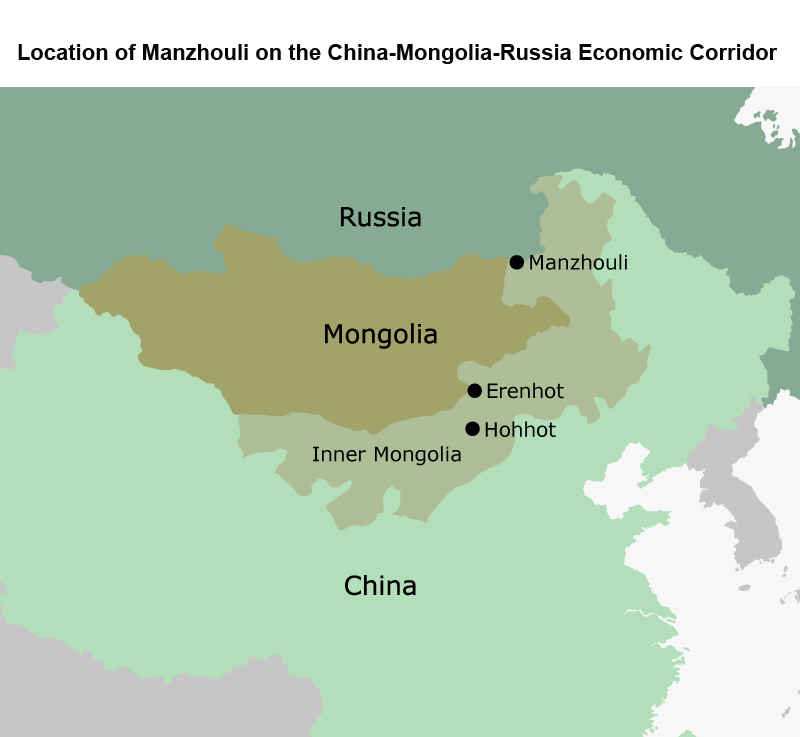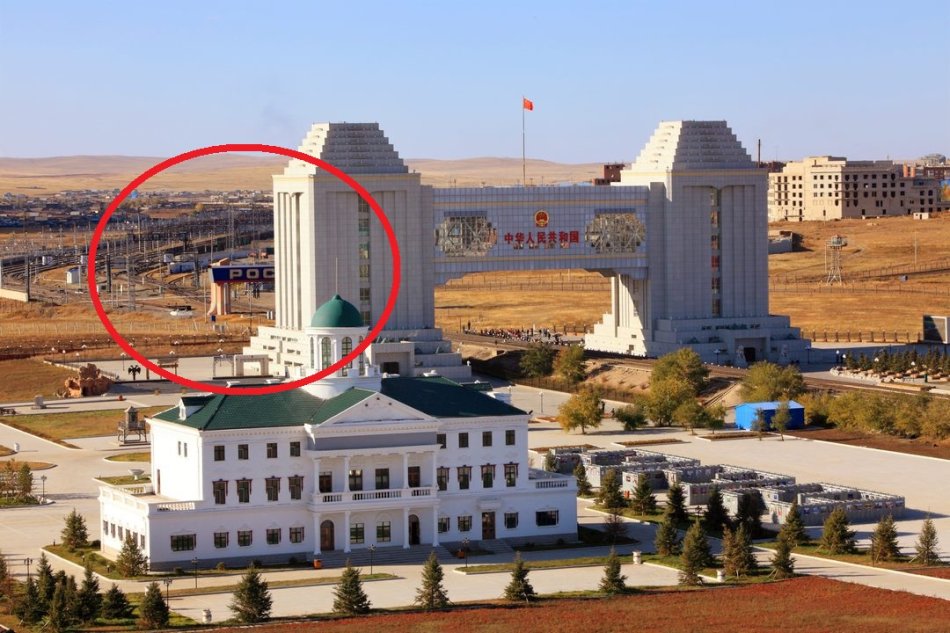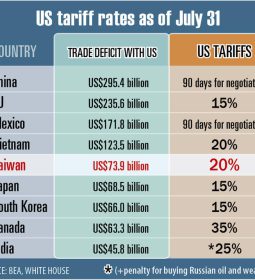China’s Voracious Appetite for Timber Stokes Fury in Russia and Beyond

China’s Voracious Appetite for Timber Stokes Fury in Russia and Beyond
Lumber from Russia stacked outside Manzhouli, a Chinese border town, where it is processed and then shipped throughout the country and the world.CreditLam Yik Fei for The New York Times
From the Altai Mountains to the Pacific Coast, logging is ravaging Russia’s vast forests, leaving behind swathes of scarred earth studded with dying stumps.
The culprit, to many Russians, is clear: China.
Since China began restricting commercial logging in its own natural forests two decades ago, it has increasingly turned to Russia, importing huge amounts of wood in 2017 to satisfy the voracious appetite of its construction companies and furniture manufacturers.
“In Siberia, people understand they need the forests to survive,” said Eugene Simonov, an environmentalist who has studied the impact of commercial logging in Russia’s Far East. “And they know their forests are now being stolen.”
Russia has been a witting collaborator, too, selling Chinese companies logging rights at low cost and, critics say, turning a blind eye to logging beyond what is legally allowed.
Chinese demand is also stripping forests elsewhere — from Peru to Papua New Guinea, Mozambique to Myanmar.
In the Solomon Islands, the current pace of logging by Chinese companies could exhaust the country’s once pristine rain forests by 2036, according to Global Witness, an environmental group. In Indonesia, activists warn that illegal logging linked to a company with Chinese partners threatens one of the last strongholds for orangutans on the island of Borneo.
Environmentalists say China has simply shifted the harm of unbridled logging from home to abroad, even as it reaps the economic benefits. Some warn that the scale of logging today could deplete what unspoiled forests remain, contributing to global warming.
At the same time, China is protecting its own woodlands.
Two decades ago, concerns about denuded mountains, polluted rivers and devastating floods along the Yangtze River made worse by damaged watersheds prompted the Communist government to begin restricting commercial logging in the nation’s forests.
The country’s demand for wood did not diminish, however. Nor did the world’s demand for plywood and furniture, the main wood products that China makes and exports.
It is one thing for Chinese demand to overwhelm small, poor nations desperate for cash, but it is another for it to drain the resources of a far larger country, one that regards itself as a superpower and a strategic partner to China.
The trade has instead underscored Russia’s overreliance on natural resources and provoked a popular backlash that strains the otherwise warm relations between the countries’ two leaders, Vladimir Putin and Xi Jinping.
Protests have erupted in many cities. Members in Russia’s upper house of parliament have assailed officials for turning a blind eye to the environmental damage in Siberia and the Far East. Residents and environmentalists complain that logging is spoiling Russian watersheds and destroying the habitats of the endangered Siberian tiger and Amur leopard.
“What we are doing now in Siberia and the Far East is destroying what is left of the original intact forest landscapes,” said Nikolay M. Shmatkov, director of the forestry program for the World Wildlife Fund in Russia. The group has documented the destruction using satellite images over a period that coincides with the Chinese logging boom in the country.

“It’s not sustainable,” he said.
‘Nothing Will Be Left’
China’s stunning economic transformation over the last four decades has driven its demand. It is now the world’s largest importer of wood. (The United States is second.) It is also the largest exporter — turning much of the wood it imports into products headed to Home Depots and Ikeas around the world.
The total value of China’s timber imports — rough logs, timber or wood pulp — has increased more than 10 times since China began restricting logging at home in 1998, reaching $23 billion in 2017, the highest ever, according to IHS Markit’s Global Trade Atlas.

The government extended a regional ban to the rest of the country at the end of 2016. It now allows commercial logging only in forests that have been replanted, a policy that environmentalists say other countries should emulate.
The problem is that many have not, and Chinese companies have pursued these opportunities.
More than 500 companies operate in Russia now, often with Russian partners, according to a report by Vita Spivak, a scholar on China for the Carnegie Moscow Center. Russia once delivered almost no wood to China; it now accounts for more than 20 percent of China’s imports by value.
“If the Chinese come, nothing will be left,” Marina Volobuyeva, a resident of the Zamensky region south of Lake Baikal, told a television channel after a Chinese company secured a 49-year lease to log in the area.
Russia sells such logging concessions at prices that vary by region and type of wood, but on average, they cost roughly $2 a hectare, or 80 cents an acre, per year, according to Mr. Shmatkov of the World Wildlife Fund. That is far below the cost in other countries.
In 2017, China imported nearly 200 million cubic meters of wood from Russia.
Artyom Lukin, a professor of international studies at the Far Eastern Federal University in Vladivostok, noted that government corruption, criminality and the lack of economic development in Siberia and the Far East have also made the crisis worse.
“In many rural areas of the Russian Far East and Siberia, there are few other ways to make money, or to make a living, than stripping natural resources of the vast surrounding forests,” he said.

Timber Transforms a Chinese Town
For China, though, the trade has been a boon.
Much of the wood from Russia crosses the border in Manzhouli, a former nomadic settlement that became a junction in the Trans-Siberian Railway at the turn of the 20th century. The trade has transformed what was once a sleepy border town into one of China’s main hubs for wood processing and production.
In the last two decades, more than 120 mills and factories have sprung up. They process raw or rough-cut lumber into plywood, and manufacture veneer panels, laminated wood, doors, window frames and furniture.
The factories cover dozens of acres on the city’s edge and have created more than 10,000 jobs in a city of 300,000 people, according to a municipal official.
New construction has made the city an architectural homage to Russian culture. Many buildings have features like faux onion domes. There is even a replica of St. Basil’s Cathedral that is a children’s science museum, and a hotel in the shape of what officials claim is the world’s largest matryoska, or nesting doll.
Zhu Xiuhua’s career has traced the arc of the Russian trade.
Now 50, Ms. Zhu moved to Manzhouli when China began restricting logging. She began brokering imports from Russia, then in 2002 began to seek the rights to log Russian forests directly. Four years later, she founded the company she owns today, the Inner Mongolia Kaisheng Group, one of the city’s biggest.
Ms. Zhu now oversees three factories in Manzhouli, as well as concessions to log 1.8 million acres of Russian forests near Bratsk, a city next to Lake Baikal, and to transport them to China. “We are growing every year,” she said.
When pressed, she declined to discuss her concessions in detail, but according to the company’s website, she had invested $20 million in Russia by 2015. China’s official Xinhua News Agency estimated the conglomerate’s assets at $150 million in 2017.
The border crossing at Manzhouli, marked by two arches and divided on the Chinese side by a green wire fence that stretches for hundreds of miles. The Chinese side is a park that is closed to foreigners. The crossing has become China’s largest landlocked port for goods, including wood, coal and petrochemicals.CreditLam Yik Fei for The New York Times
In Ms. Zhu’s view, the trade is a classic case of supply meeting demand. She described it, perhaps overconfidently, as enduring.
The next step will be to seek more concessions westward. “Krasnoyarsk,” she said, using first the Mandarin version of the name before pronouncing it in Russian. “You could not log all of it in 100 years,” she said.
Laundering Logs
There are international protocols that seek to control where and what kinds of trees are logged, and the United States extended the Lacey Act in 2008 to ban the import of wood obtained illegally anywhere, but such regulations are difficult to enforce.
In some countries, like the United States and Canada, logging is strictly policed, but Chinese companies often exploit lax oversight elsewhere and log in protected forests, according to officials and environmentalists.
In Russia, logging commonly encroaches on areas outside the allotted boundaries and companies that export wood to China are known to falsify records.
ADVERTISEMENT
Logging without contracts is also common, while arsonists are suspected of having set fires to forests, because scorched trees can be legally culled and sold.
In 2016, the Department of Justice accused Lumber Liquidators of illegally importing hardwood flooring that was mostly made in China using timber illegally harvested in Russia’s Far East.
Accusations of corruption have stoked public anger in Russia. A question on the extent of illegal logging prompted an acerbic response from Mr. Putin in his annual news conference in December. He called Russia’s forestry industry “a very corrupt sector.”
‘Barbaric Deforestation’
Protests against logging — and Chinese logging in particular — have erupted across Siberia and the Russian Far East. They have stoked ethnic tensions along a border that extends more than 2,600 miles between Russians and Chinese who had long had mutual suspicions shaped by political and cultural differences.
One protest last May in Ulan Ude, a regional capital near Lake Baikal, resulted in scuffles with the police and eight arrests. “Stop the barbaric deforestation,” a sign declared.
The issue has become so politically volatile that in January the head of Russia’s forestry service, Ivan Valentik, faced pointed questioning in the upper house of parliament, which does not usually challenge Mr. Putin’s government directly.

He defended the concessions, but also sought to shift blame to the Chinese companies for not fulfilling their contracts — by, for example, replanting forests. He suggested that Russia could be forced to end direct sales of timber to China.
In China, the State Forestry and Grassland Administration did not respond to written questions. Officials have previously pledged that Chinese companies would adhere to local laws and be mindful of the environmental impact.
Ms. Zhu initially said she did not worry about the protests inside Russia since everything her company did was done according to Russian laws. After the latest round of public hearings in Moscow, however, she sounded less sanguine.
“Russia is changing now,” she said by telephone, and then declined to answer any more questions.
Claire Fu contributed research in Manzhouli, Heihe and Beijing.
By Steven Lee Myers
- Previous No two-thirds majority support to amend Constitution of Malaysia
- Next As Moon heads to Washington, Kim turns to old friend Moscow
















